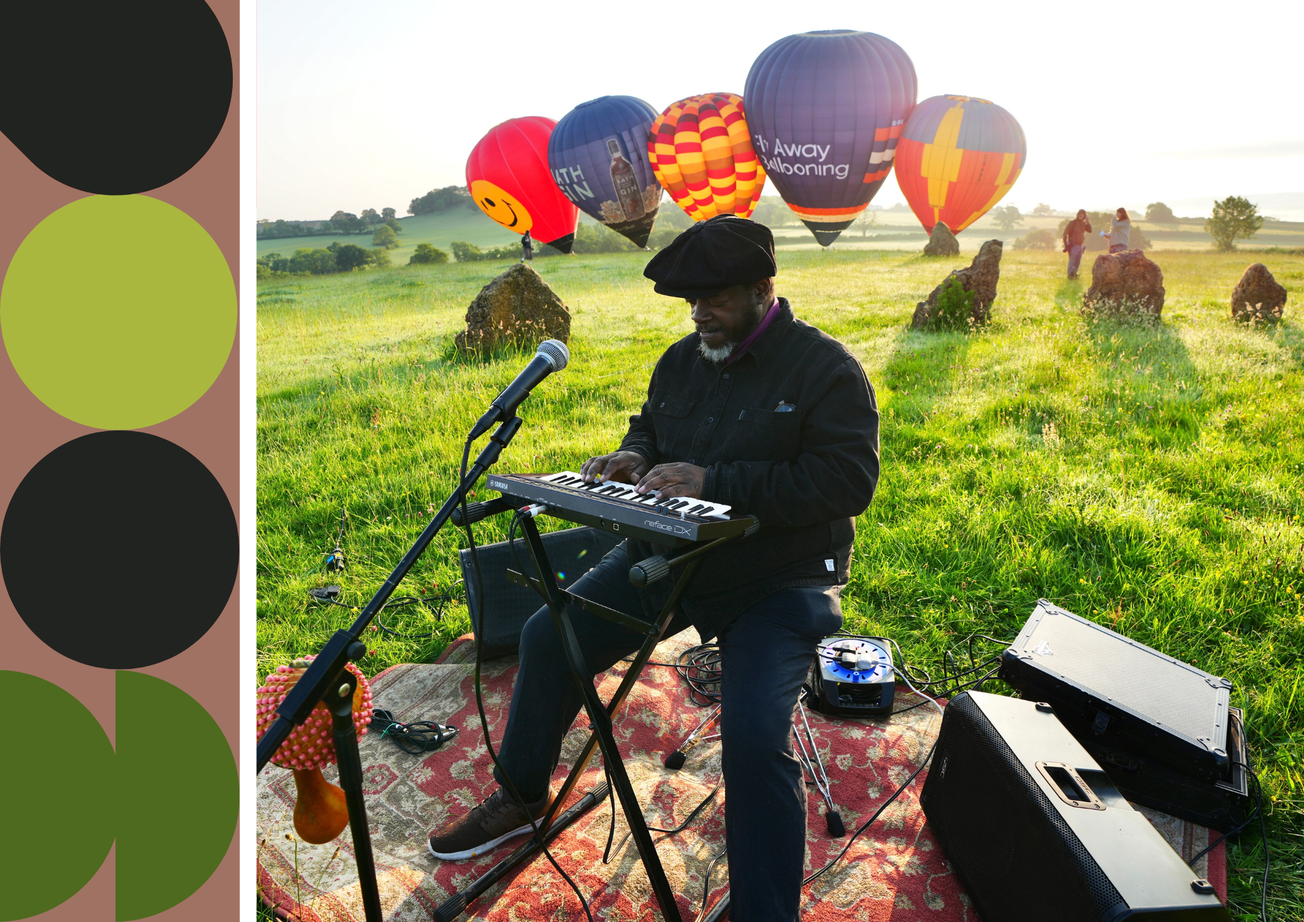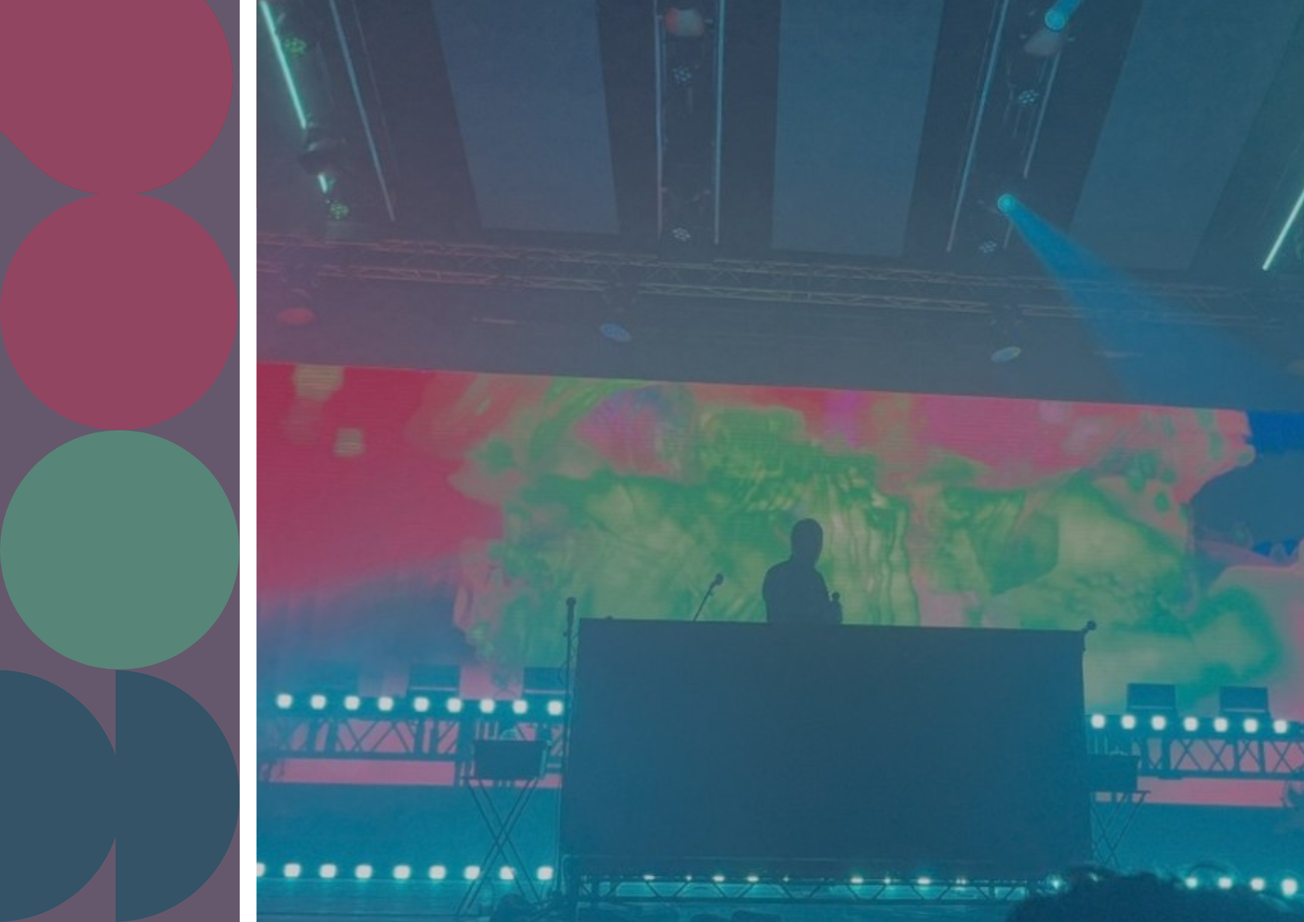By Siavash Minoukadeh, Entertainment Subeditor
There’s a lot that’s intriguing about a band like HMLTD - their gothic glam, their theatrical live shows and the controversies that have arisen around them - but at the core of it all, they make music, and music which isn’t made to neatly fit into any genre. I start by asking Henry, their lead vocalist, to try and describe their sound.
‘I always think that’s a good test of how you would describe your music [to do it] as if you were trying to describe it to your grandparents. I guess I’d usually say “electronic punk” but a big part of what we do comes from the fact that we were really bored at looking at other artists and seeing that they only ever really did one thing. I think if you look at most bands or most artists, to a degree, all their songs sound the same so it’s always really important for us that every song we wrote was really distinct and different from all the other songs. As a result of that, we’ve ended up doing quite a lot of different genres because of this intention to never make the same song twice.’
Unsurprisingly then, HMLTD haven’t got anyone who they’ve been directly influenced by musically. Instead, their inspiration comes from musicians who may not necessarily sound similar to them, but who make music with a similar aim.
‘I think we’ve always been inspired by bands and artists that champion the outsider voice … When I was growing up the bands that I really loved and which really made me feel connected to something wider than my immediate context were bands like The Smiths, The Cure, Depeche Mode and Nine Inch Nails. I think in this current political climate there’s this drive towards homogeneity, there’s not really many artists that are representing the outsider voice. While we don’t musically sound like The Smiths or The Cure, our aim is quite a similar one.’
It’s clear that HMLTD aren’t just making music for music’s sake: they see their work as serving a wider purpose and their latest single The West is Dead is a clear comment on the state of our world:
‘I think we’re definitely a political band. We don’t really see it as an artist’s duty to be political, in a way that I think a lot of artists do but I think we see being political as an inevitability just by virtue of simply existing. Your very existence is a political statement and this is amplified when you’re creating art within that context.
‘In terms of the political message that we explicitly push it’s connected to kind of rejecting the dominant patriarchal discourse and trying to present an alternative vision of masculinity. We see the world we live in as being defined by cruel, violent, toxic masculinity and we see that as being the core of the world’s problems.’
However, as middle class men living in London, I’m interested to know how Henry squares this radical political aim with his privilege. His answer is refreshingly honest:
‘We are definitely middle class, but the only thing that differentiates us from other bands in that respect is that we don’t pretend to be anything other than middle class … we’ve always been totally honest about that, unlike a lot of other artists we’ve never pretended to be working class, we’ve never appropriated working class culture. We’re very open about our privilege as mostly white middle class men but also we have a platform and we’re trying to use that platform to promote what we believe is a really positive message which is the critique of violent masculinity.’

This ‘critique of violent masculinity’ has led to HMLTD facing something of a backlash. Their glam-rock style and theatrical live shows has led to them being accused of appropriating queer culture. One Vice essay was particularly fierce in its criticism, claiming that the band were ‘queerness tourists’. I put these claims to Henry:
‘I found the accusation that we were appropriating queer culture a really dangerous accusation to make because it basically serves to reinforce sexual and gender stereotypes. There was an implicit message in that accusation that if you’re a straight man that you have to conform to this monolithic version of masculinity and the fact is that monolithic version of masculinity is a really awful, violent, oppressive one. It’s the one that we grew up surrounded by and it’s not one that we identify with remotely.
‘Having said that, we also don’t see ourselves as queer. We want to propose a different version [of masculinity] and whether or not that falls under a queer umbrella is not for us to say: I don’t think that it does and I don’t think that it needs to.
‘I think part of the misconception came from a mistaken belief from some quarters that we were, in a sense, acting … Whereas the reality is that what we’re doing is performative, not performance and when we dress in the way we dress, when we act in the way we act we’re really actually exploring our personal identities in a really sincere way and we’re not trying to queerbait.’
Loaded. New Music Out Tomorrow. Be Very Excited.
— HMLTD (@HMLTD) September 16, 2019
Countdown Link: https://t.co/qD83xTumxJ pic.twitter.com/glEl0pAqXY
The group, who at the time were signed to Sony and who had been releasing a steady stream of singles and working on their debut album were then reigned in by their label as damage control following the controversy. The flow of music stopped, conflicts arose and HMLTD eventually left to sign onto Lucky Number, an indie label.
‘[That period] was frustrating, because we’d undertaken the contract with Sony on the promise that we’d be allowed total creative control and while we always kept that in theory, Sony were nevertheless able to pull the strings in much more subtle insidious ways which meant that creative control was actually usurped.'
‘It was a slightly soul-destroying moment and … we started making material that we didn’t believe in and we weren’t sure who we were making it for anymore. What happened is we started making music for our audience rather than for ourselves.'
‘At the time, it was really hard and it’s been a real odyssey of emotions leading up to where we are now. Having said that, I’m in retrospect really - glad that we went through it because so much of that struggle has informed the album.’
The album in question is West of Eden, set to be released next year. Producing it through an indie label has made it more of a collaborative project, Henry adds.
‘The wonderful thing about our label Lucky Number is that they have complete and total artistic control trust in us. They don’t question our decisions … It’s really liberating being on an independent label when you’ve experienced the opposite of that’
‘When you sign with an independent label or when you work with an independent label, it feels like a collaborative process and because independent labels generally aren’t making any money from what they’re doing, you know that the people that you’re working with are doing it mostly out of love and an artistic desire to artistically contribute to the world in whatever way they can.’
As for the new album itself and it’s accompanying tour, HMLTD have an ambitious plan: ‘The story [of the album] is basically about the death of the west and man’s place within that and the role of masculinity in that decline. It’s centred through the perspective of a narrator which is based on Cain.'
‘We’re going to be playing the album, live, in full, in order and the thinking behind that is that the album is not a collection of songs, it’s a very specific story with a very particular narrative thread that we’ve curated and we wanted to bring that story into a live environment.’
‘I think our live shows are definitely a collaborative thing where the audience is involved in the collaboration because what would it be if we just did what we were doing to an empty room? It would be nothing, it would be meaningless. Each show feels totally fundamentally different from every other show we’ve ever done and that means that we never get bored.’
West of Eden is set for release on the 7th February 2020 and HMLTD will be performing in Bristol on the 21st February at the Exchange.
Featured Image: Daniel Mutton







